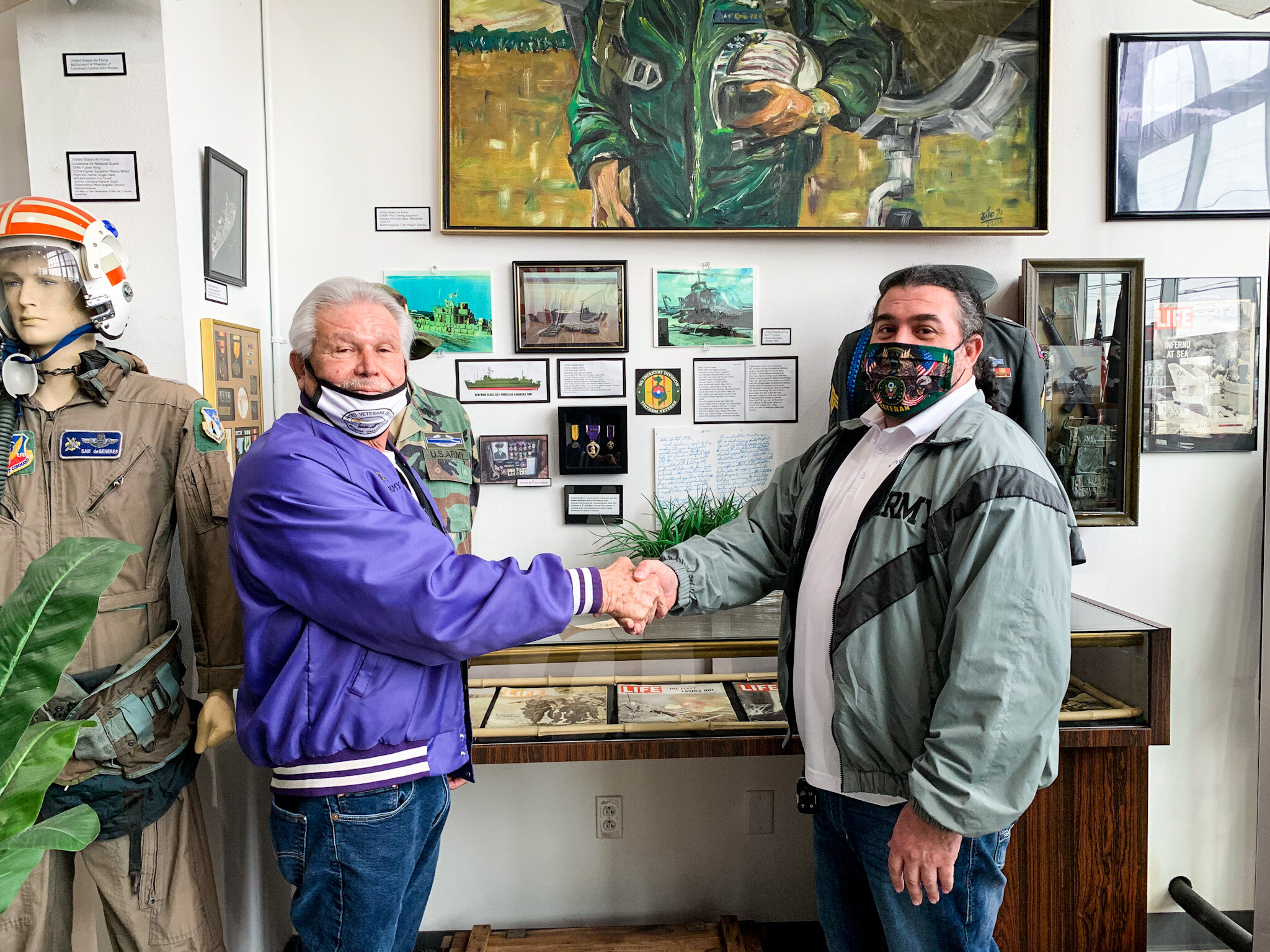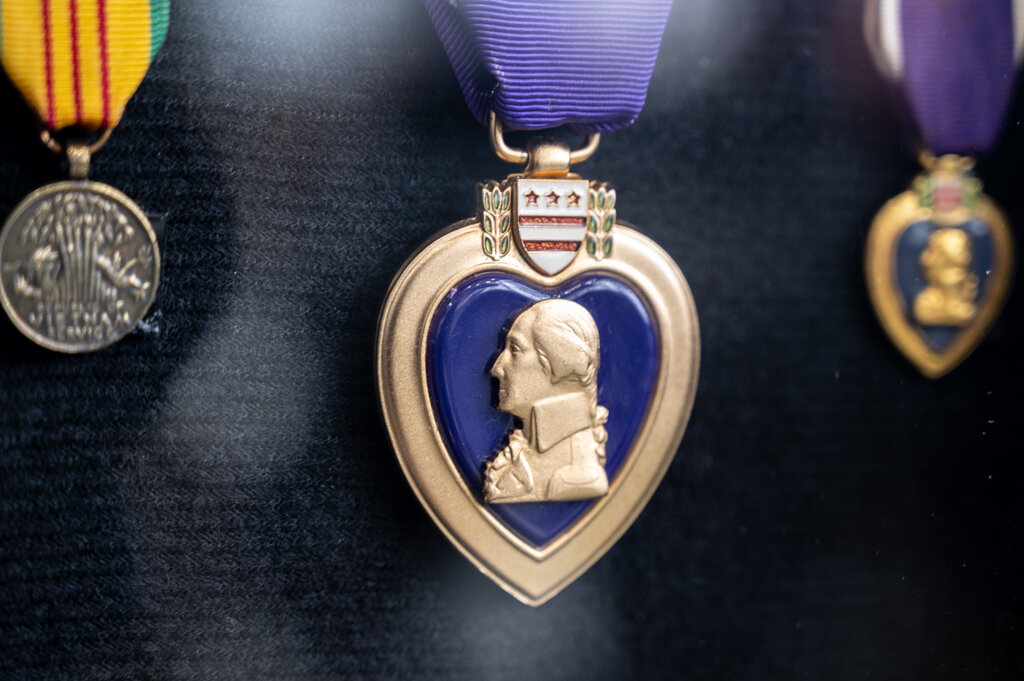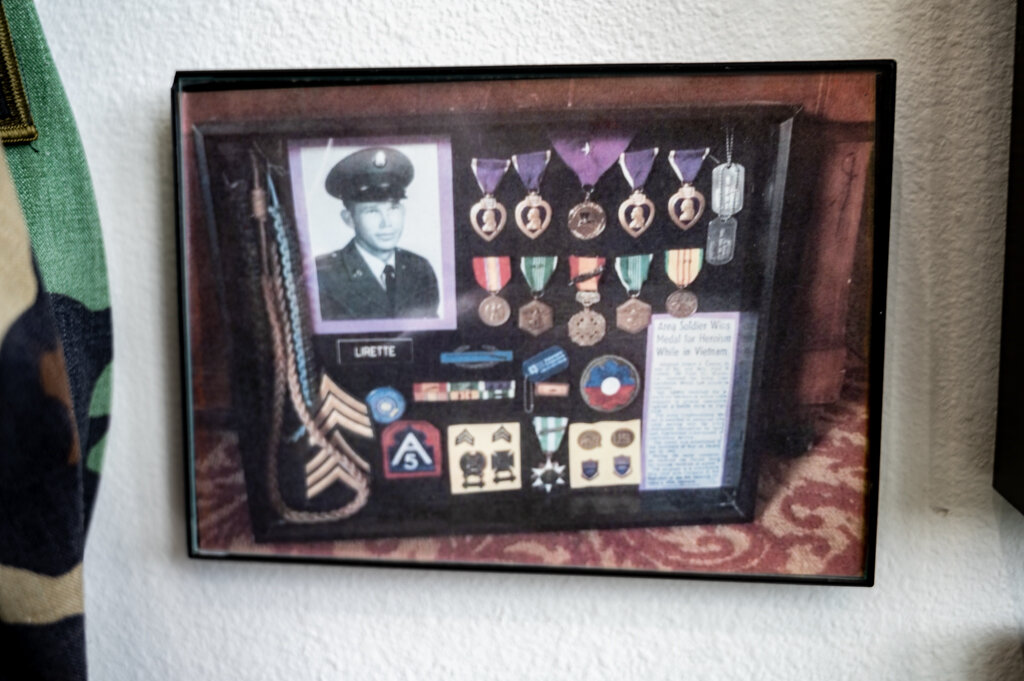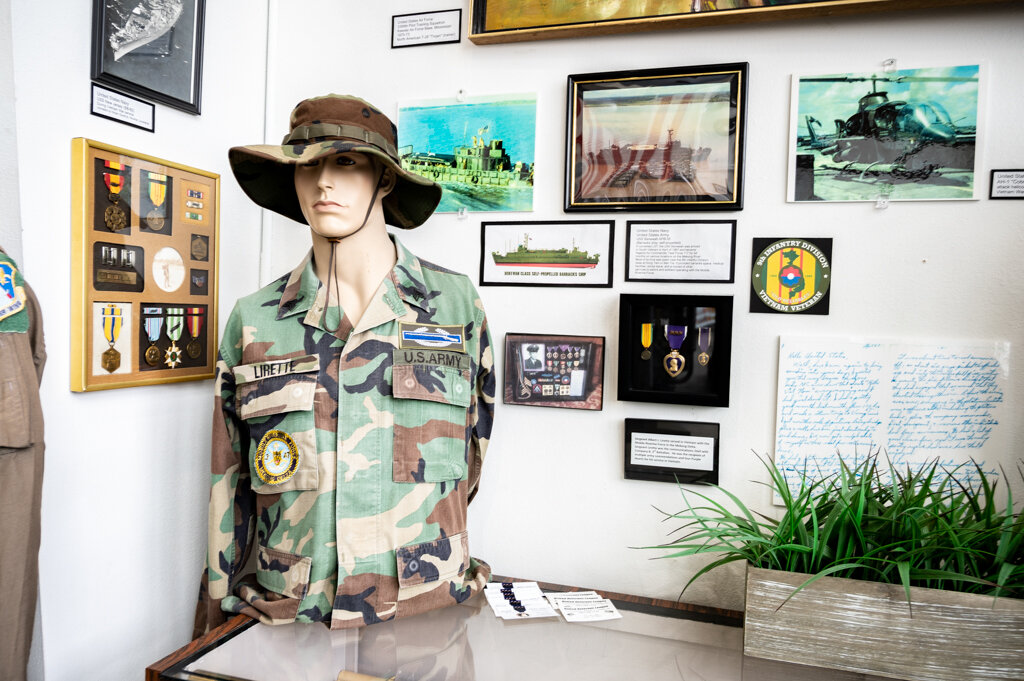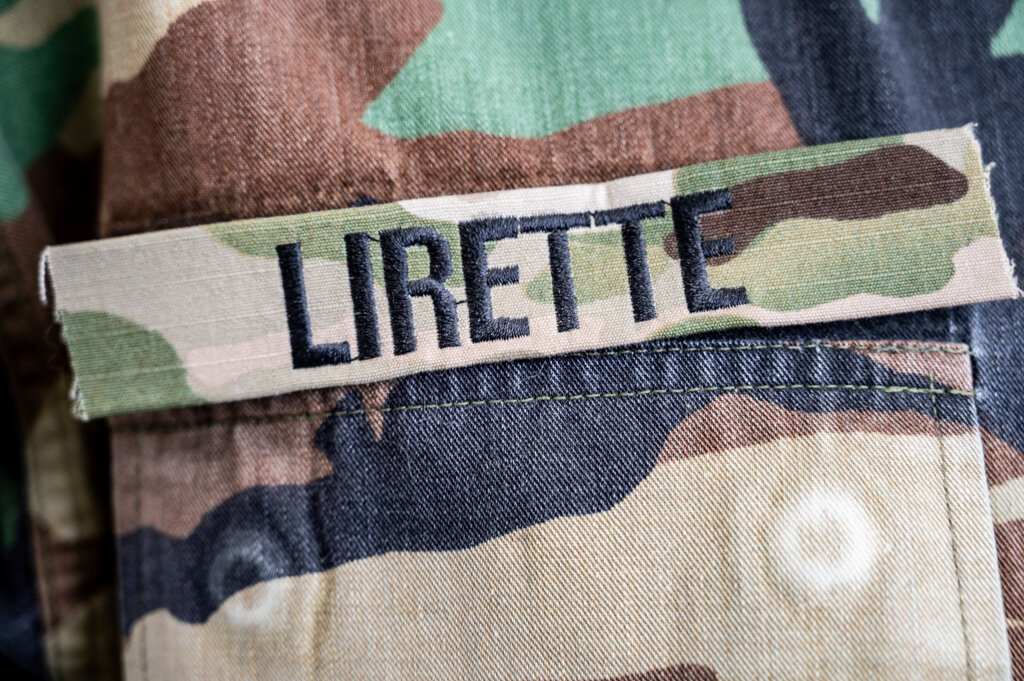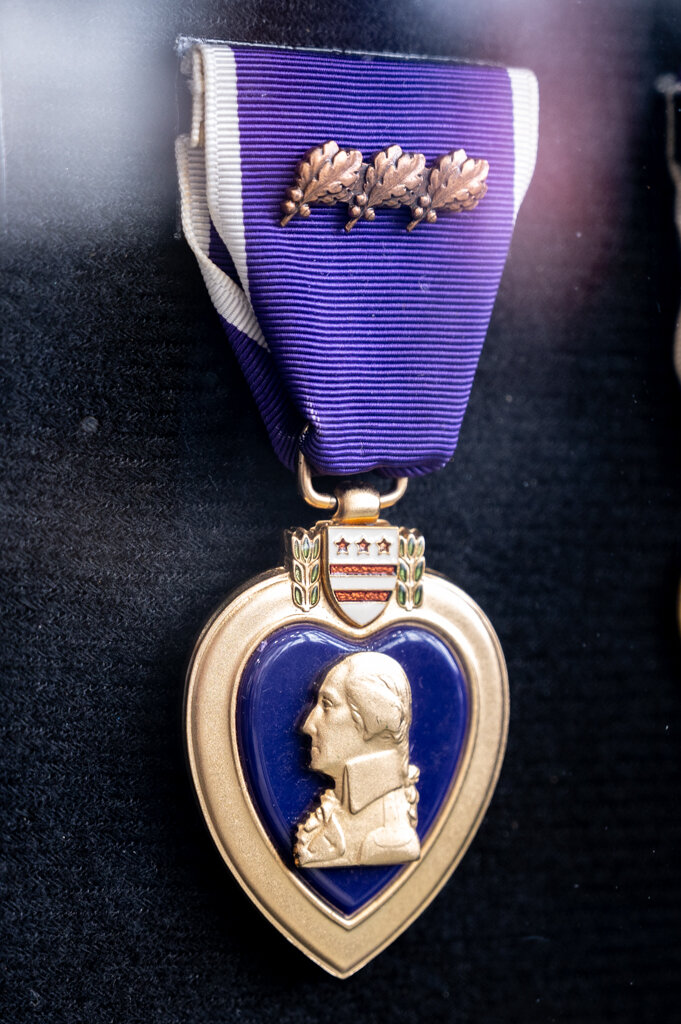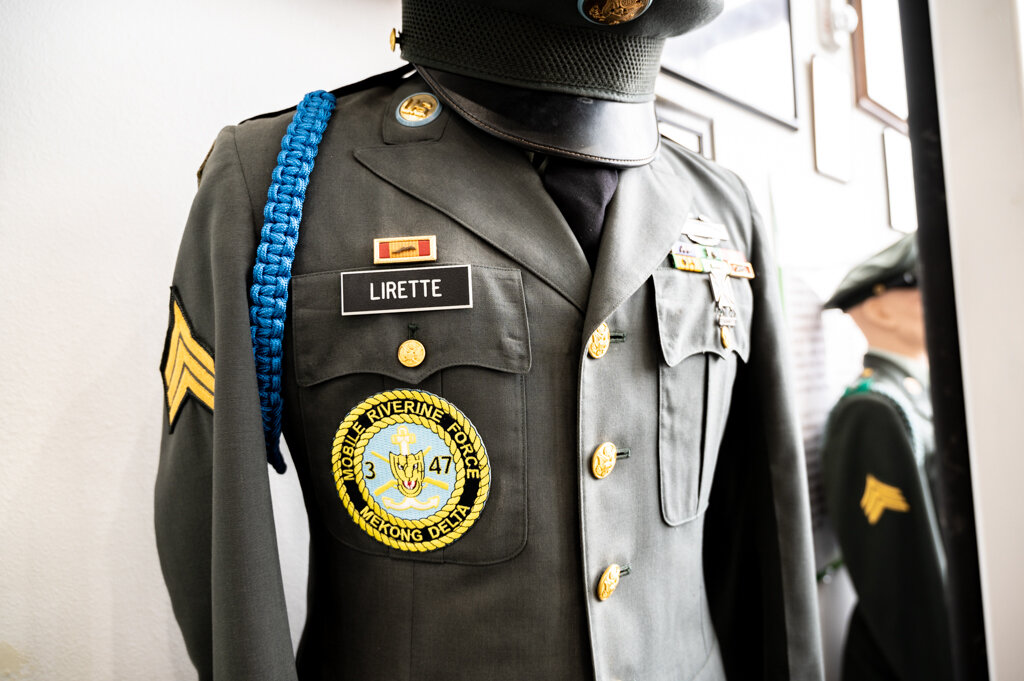Purple Hearts
/The Purple Heart is the United States of America’s longest standing military honor, awarded to military members wounded or killed in the line of duty.
The high honor is more than a badge, though; it encompasses a community of active duty members and veterans sharing in a brotherhood that extends far beyond the battlefield and into service to one another amidst life during and after duty.
Terrebonne Parish is the proud home of numerous local Purple Heart recipients, and the Regional Military Museum is honored to display some of their badges within its walls for visitors to view.
“I’d do anything for a veteran,” says local Purple Heart recipient and Vietnam War veteran Albert Lirette, whose uniforms and accolades are on display at the museum.
Lirette was drafted into the U.S. military on July 16, 1967 and served until July 17, 1969. He did eight weeks of basic training in Fort Polk, LA, before transferring to Fort Sill, OK as a radio repairman.
From there, he returned home for 30 days before heading to Vietnam on January 8, 1968 to serve with Company B, Third Battalion, 47th Infantry. He was stationed on a U.S. naval ship, the USS Benewah as a riverine.
Lirette earned four total Purple Hearts during his service in Vietnam. His first injury occurred in March of 1968 when he was hit in the left arm by a mortar. In June of that same tour, he was hit in his left wrist by a hand grenade during an ambush. That same afternoon, he was hit in his right leg by a Viet Cong M79 grenade launcher.
Lirette says he was supposed to get out of the fields at that point because of his three Purple Hearts, but he never did. His final injury occurred when he was hit in his spine in September of 1968 at Camp David. He finally returned to the U.S. in January of 1969, where he served his final six months in Fort Riley Kansas with the 508th Military Police Battalion as a body escort.
Now, over 50 years later, Lirette has been nominated as Louisiana’s representative to the National Purple Heart Hall of Honor for his work as an advocate for local veterans.
“I’ll be there [in New York] with 49 other veterans,” Lirette says. “It’s an honor…I know there are millions of Purple Heart veterans throughout the world.”
Lirette uses his military experience and Purple Heart status to help connect with other veterans and Purple Heart recipients to ensure a life of peace and community beyond their military service.
One of those veterans is Bayou Blue native Jonathan LeBouef, a Purple Heart recipient and Iraq War veteran who served 15 years with the Louisiana National Guard as an infantryman.
LeBouef began his service in 2005, undergoing basic training in Fort Benning, GA, until February 5 of that year. His first tour began on March 10, 2005, and by April 1, he was overseas in Iraq.
Two weeks into his station in Iraq, LeBouef was on patrol with a convoy that was targeted by an IED while traveling down Route Irish. LeBouef’s truck was hit by the bomb, leaving his team with burns and injuries. LeBouef suffered from brain trauma and wounds due to shrapnel as a result of the attack - earning the young serviceman his Purple Heart.
“I actually didn’t even want the Purple Heart, but they didn’t give me a choice. I didn’t feel that [my injury] was something worthy of getting a purple heart,” LeBouef says. “I got my purple heart really early on in my career, and even with that I still stayed because it was what I loved to do.”
LeBouef says it took roughly two hours for another team to reach him and his crew to return them to base.
Even after his injury, LeBouef remained in service with the National Guard for 14 years, including another tour in Iraq in 2010 as a guard at an entry control point. Following his second tour, he aided with national disaster relief efforts in the U.S. as part of the National Guard, as well as tours in Germany for training purposes.
Today, Lirette and LeBouef are both part of Terrebonne Parish’s Purple Heart chapter - a community of veterans committed to helping other veterans to meet their personal and family needs.
Roughly 11 to 12 years ago, Lirette saw a need for a local chapter and worked to make it happen.
“We never had a Purple Heart chapter in Terrebonne Parish…I asked [Jim Tuttle] if we could do a Purple Heart chapter, so we did, we got a charter, we got I think 12 or 13 veterans to sign a charter, and we established a Purple Heart chapter,” Lirette says.
LeBouef found his way to Lirette and the Purple Heart chapter by what seemingly feels like fate. His step-father Edward Bernard, who was also a veteran, worked on a tugboat in New York and used to buy LeBouef and his brother Hess toy trucks. LeBouef decided to search for a new collection of Hess trucks years later following his service, after his childhood collection was given away. As it turned out, the owner of the new collection was a Purple Heart veteran as well and told him about the local chapter.
In its history, the Terrebonne Parish chapter has honored its Purple Heart brothers by naming a bridge on Highway 311 as the Purple Heart Bridge, and by simply offering them a place to find other veterans with shared experiences.
LeBouef says that the chapter is seeking new members, especially young veterans.
“We’re looking at other methods to get the word out so that way other Purple Heart veterans know that there’s a place they can go where other soldiers like them might understand what they go through and went through,” LeBouef says.
“We’re very, very small, but we are growing…We have a lot a leadership. We will not give up…We’re there for the veterans. We’re there for the families. We’re there for the future. We’re there for all organizations that want to come on in,” Lirette says.
For Purple Heart veterans like Lirette and LeBouef, the Purple Heart status will always stand for something bigger than a medal. LeBouef says that having a community of fellow recipients like Lirette to lean on for support “means everything.”
“I feel that my purpose in serving my country has always been so that my kids don’t have to, or in the hopes that our next generation won’t have to go through what I went through, just like those before me [feel]…and a lot of other veterans feel the same way, too,” LeBouef says.

